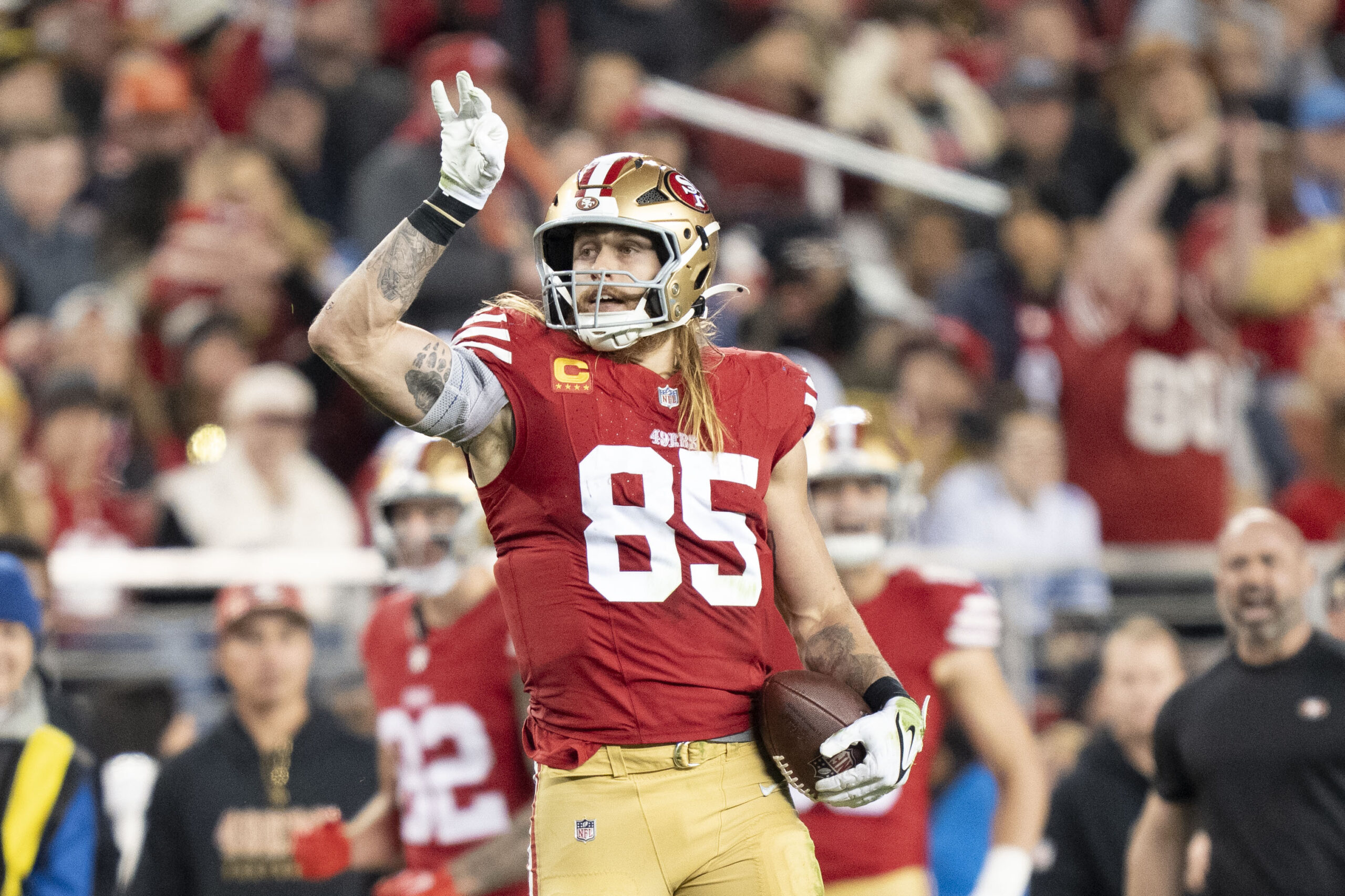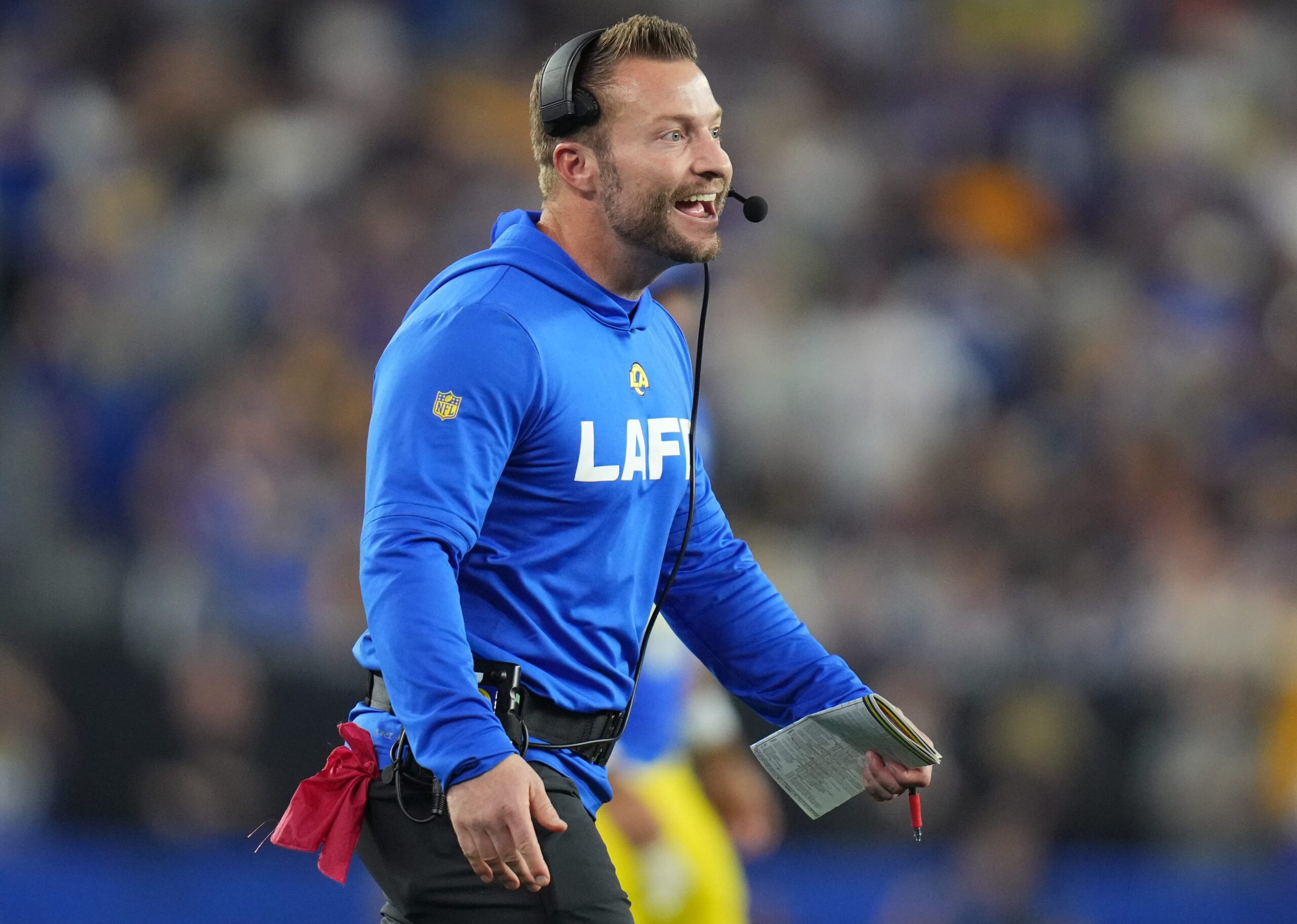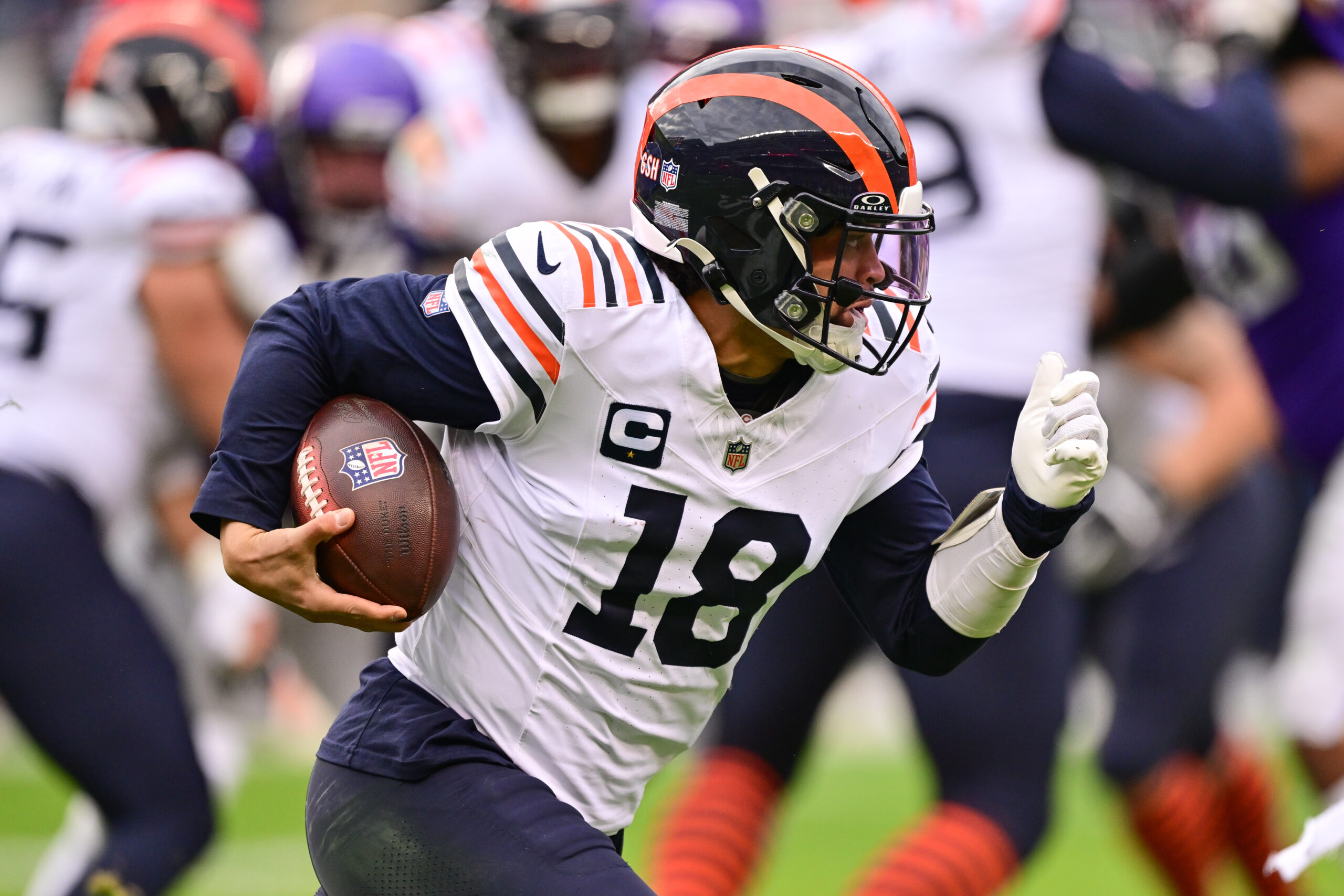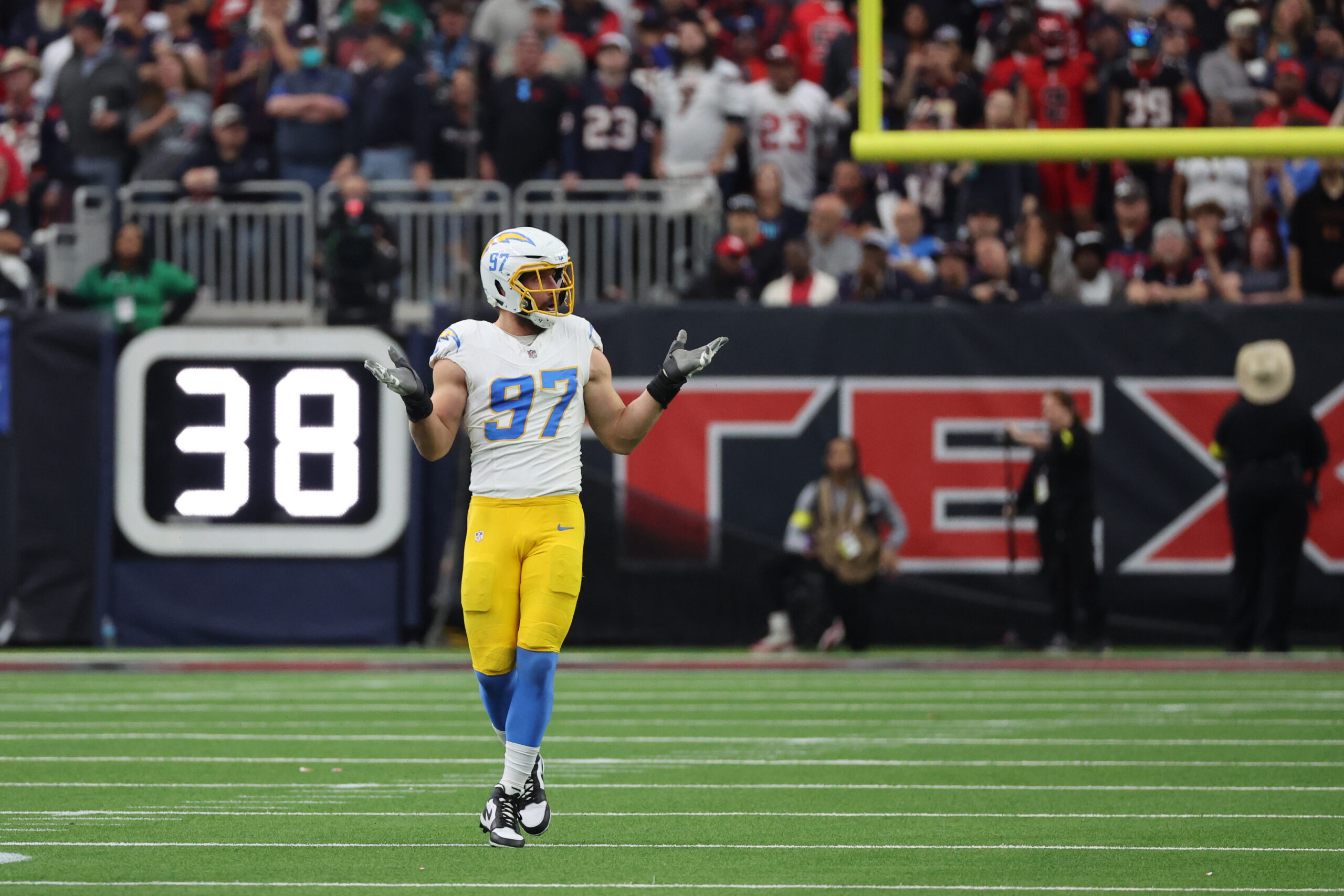NFL Analysis
7/3/24
9 min read
Ranking the 5 Greatest Dynasties in NFL History
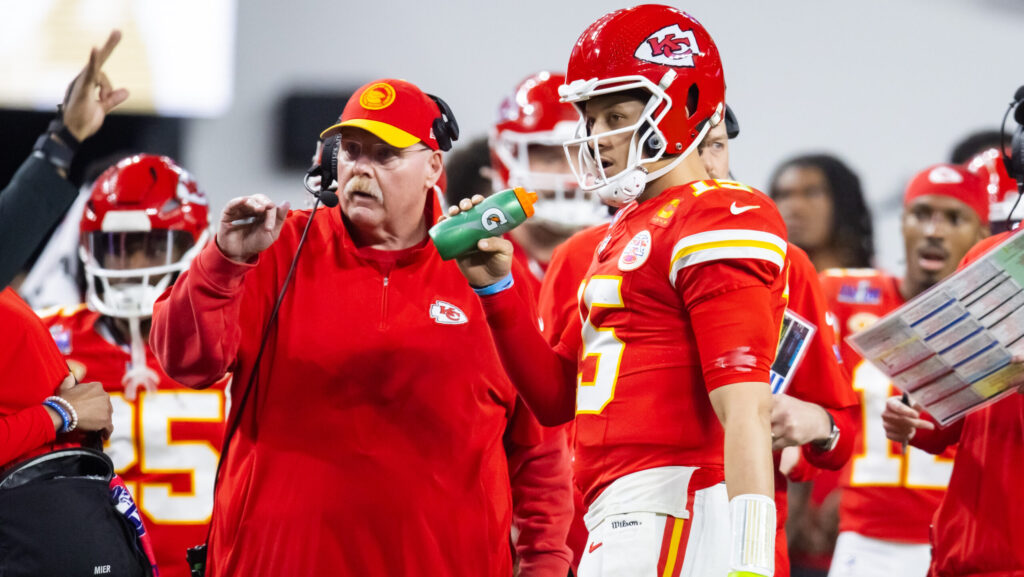
Creating a dynasty in the modern NFL era was supposed to be impossible. Salary cap restrictions and the player empowerment era have led to endless transactions with potential Hall of Famers and perennial Pro Bowl-caliber talent. Parity is at an all-time high in 2024 in terms of teams competing for the expanded playoffs, but it turns out that legendary quarterbacks are the foolproof solution for prolonged dominance.
What makes a dynasty? Historically, the most elite and exclusive club includes teams that win at least three Super Bowls within a decade or less. This is even more impressive in a shorter window because there have been only nine back-to-back Super Bowl champions.
We can expand the definition to include franchises that ripped off sustained periods of division titles and overall wins, but our list of five greatest NFL dynasties doesn't have to loosen its criteria that much. Only six dynasties were considered for the top spot.
Which dynasty reigns supreme?
>> All Time Rankings: QB | RB | WR | TE
5 Best NFL Dynasties of All Time
Teams like the Oakland/Las Vegas Raiders from the late 1960s through the mid-1980s, the 1970s Dallas Cowboys, and Joe Gibbs' Washington Commanders enjoyed incredible runs, but none had enough Lombardi Trophies to surpass the biggest omission from our list: the early 1990s Cowboys.
These five teams had immensely successful peaks in the regular and postseason seasons. We considered the league's level of competition at the time, the term of their dynasty, the individual achievements of players on each roster, and Super Bowls.
5. Kansas City Chiefs (2018 - Present) 
Since Patrick Mahomes became the starting quarterback for the Kansas City Chiefs in 2018, the team has been on an impressive journey that could secure them a spot among the top NFL dynasties ever, especially after winning Super Bowl 58 against the San Francisco 49ers. They beat out the 1991-1995 Cowboys for the fifth spot because this era has lasted longer than Dallas', and free agency is more complex now.
Under Mahomes' guidance for six seasons, the Chiefs have experienced the most successful period in their history. They have made six straight trips to the AFC Championship Game and secured four wins.
Powered by Mahomes and star tight end Travis Kelce's dynamic offense, along with a robust defensive lineup built around Chris Jones, has triumphed in three out of the four Super Bowls they played in. Their only loss was to Tom Brady and the Tampa Bay Buccaneers in Super Bowl 55. Two of those wins have come without potential future Hall of Fame receiver Tyreek Hill, who was traded to allocate resources to the defense.
As only the second team in this century to compete in the Super Bowl four times within five years — a feat also achieved by the Patriots — the Chiefs have demonstrated exceptional resilience and grit. They've overcome a 10-point deficit in their three Super Bowl wins, establishing themselves as one of the most steadfast and formidable teams in the history of the NFL.
4. Green Bay Packers (1960-1967) 
The Green Bay Packers dynasty lasted from 1960 to 1967 under the guidance of legendary coach Vince Lombardi, who joined the team in 1959. The Packers' immediate dominance marked the beginning of a new era in the NFL and is forever etched as one of the most storied periods in the league's history.
Under Lombardi, the Packers were revitalized from a period of mediocrity into an unstoppable force, claiming five NFL championships and triumphing in the first two Super Bowls during this golden era of the 1960s. At the heart of this dominating team was the iconic quarterback Bart Starr, whose leadership on the field earned him the NFL MVP award in 1966.
The Packers' offensive unit, famous for its powerful sweeps and meticulously crafted plays, was perfectly balanced by a formidable defense where stars like Ray Nitschke and Willie Davis made their mark.
Their supremacy was unmistakably showcased through their three straight NFL championships from 1965 to 1967, with the last two leading to their historic wins in the initial two Super Bowls.
One of the most memorable battles in this period was the chilling 1967 Ice Bowl. The Packers secured the NFL Championship against the Dallas Cowboys, the same team they had bested for the title the previous year. This still stands as the coldest game in NFL history.
3. San Francisco 49ers (1981-1998) 
The San Francisco 49ers' remarkable era from 1981 to 1998 remains a highlight in NFL lore, even though it coincided with other notable times. Under the leadership of coaches Bill Walsh (1979-1988) and George Seifert (1989-1996), the 49ers excelled. They secured all five of the franchise's Super Bowl victories within their initial 14-year span. The final four seasons we included still produced 48 regular-season wins before the franchise turned the page on Steve Young.
This golden era showcased the rise of quarterback Joe Montana, known for his clutch performances as "Joe Cool." While many recall the legendary partnership of Montana and Jerry Rice, it's interesting to note that Montana achieved his first two championships before Rice joined the team in 1985.
Their dynasty started with a Super Bowl win in the 1981 season. That was followed by unparalleled success throughout the '80s, including another championship after the 1984 season and consecutive wins in 1988 and 1989. The 49ers' dominance stretched into the '90s under Seifert, peaking with a Super Bowl victory after the 1994 season, this time with Young as the quarterback.
However, the 49ers' prowess wasn't limited to their offense.
On the defensive side, stars like Ronnie Lott and Charles Haley were key players, shaping a robust defense to match the team's dynamic offense. Additionally, the one-season acquisition of Deion Sanders in '94 is notable, as he won the Defensive Player of the Year award.
Deciding between Green Bay and San Francisco for the third slot was difficult. However, San Francisco had the tougher task as their run came in a more competitive league. To put it in perspective, Lombardi was considered progressive for drafting Black players in the first round, and it was only a 12-team league. Meanwhile, the 49ers were a continued league power with two Hall of Fame quarterbacks.
2. Pittsburgh Steelers (1972 - 1979) 
The Pittsburgh Steelers' dominance from 1972 to 1979 stands as one of the most powerful eras in NFL history. Under coach Chuck Noll, who replaced Bill Austin in 1969, the Steelers adopted an aggressive style of play that led them to victory in four Super Bowls within just six years – an unmatched achievement.
At the core of this legendary team was the renowned "Steel Curtain" defense, which boasted future Hall of Famers like Mean Joe Greene, Jack Lambert, Jack Ham, and Mel Blount. Of these four defensive titans, only Ham did not clinch the Defensive Player of the Year award. This formidable unit quickly earned a reputation as one of the best of all time, consistently overpowering their opponents' offenses.
On offense, the Steelers were no less impressive. Key players included quarterback Terry Bradshaw, running back Franco Harris, and a talented receiving duo of Lynn Swann and John Stallworth.
Despite not being known for extraordinary statistical achievements, Bradshaw's knack for crucial plays and Harris's solid running game made Pittsburgh's offense almost as intimidating as its defense.
The team showed early signs of promise in 1972, Bradshaw’s third season, by making it to the AFC Championship Game, though the unbeaten Miami Dolphins defeated them. Then, a 1974 rookie class that boasted five future Hall of Famers helped Pittsburgh triumph in the subsequent years.
The Steelers' fortified roster clinched championships in 1974, 1975, 1978, and 1979.
1. New England Patriots (2001-2018) 
From 2001 to 2018, the New England Patriots, under coach Bill Belichick and quarterback Tom Brady, achieved what is the most remarkable and continuous string of victories in the history of the NFL. They had star power, incredible longevity, and lasted numerous roster iterations until the very end.
This era of unparalleled success kicked off with an electrifying win in the Super Bowl after the 2001 season. This season also saw Tom Brady, who would later become renowned as one of the greatest draft picks in NFL history, swiftly ascend to the starting position following a Week 2 injury to Drew Bledsoe.
Brady led the Patriots to an 11-3 record in his 14 starts during the regular season and clinched a nail-biting victory against Kurt Warner and the favored St. Louis Rams in Super Bowl XXXVI, setting the stage for a dynasty. This win began a golden era, with the Patriots making nine Super Bowl appearances and capturing six championships.
These six championship seasons notably exclude the 2007 season, in which the Patriots achieved a perfect 16-0 regular-season record only to suffer a close defeat in the Super Bowl to Eli Manning and the New York Giants. It's hard to fathom much more going right for the Patriots throughout their dynasty, but losing such a historical season took away the chance to accomplish football's rarest achievement.
The Patriots' capacity for extraordinary comebacks was never more evident than in Super Bowl LI when they mounted a historic rally to overcome a 28-3 deficit against the Atlanta Falcons. After the 2019 season, this iconic partnership disbanded. Brady moved on to the Buccaneers, quickly securing his seventh Super Bowl ring.
With Brady, the Patriots produced 219 regular-season wins, 30 postseason victories, 17 divisional titles, and nine Super Bowl appearances. The Patriots rostered one of the greatest receivers of all time, Randy Moss, and the best tight end of all time, Rob Gronkowski.
Richard Seymour, Vince Wilfork, Jerod Mayo, Ty Law, Devin McCourty, and Rodney Harrison headlined the near-countless list of defensive stars.


